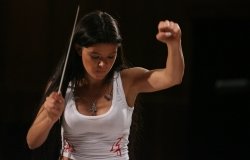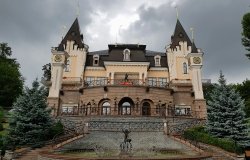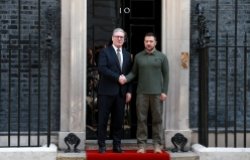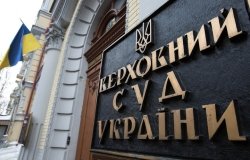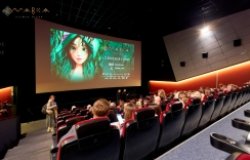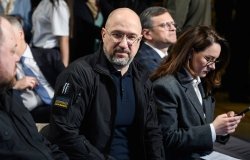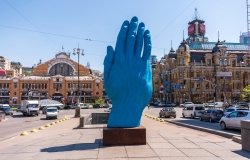
A blog of the Kennan Institute
Putting the Aggressor on Silent Mode
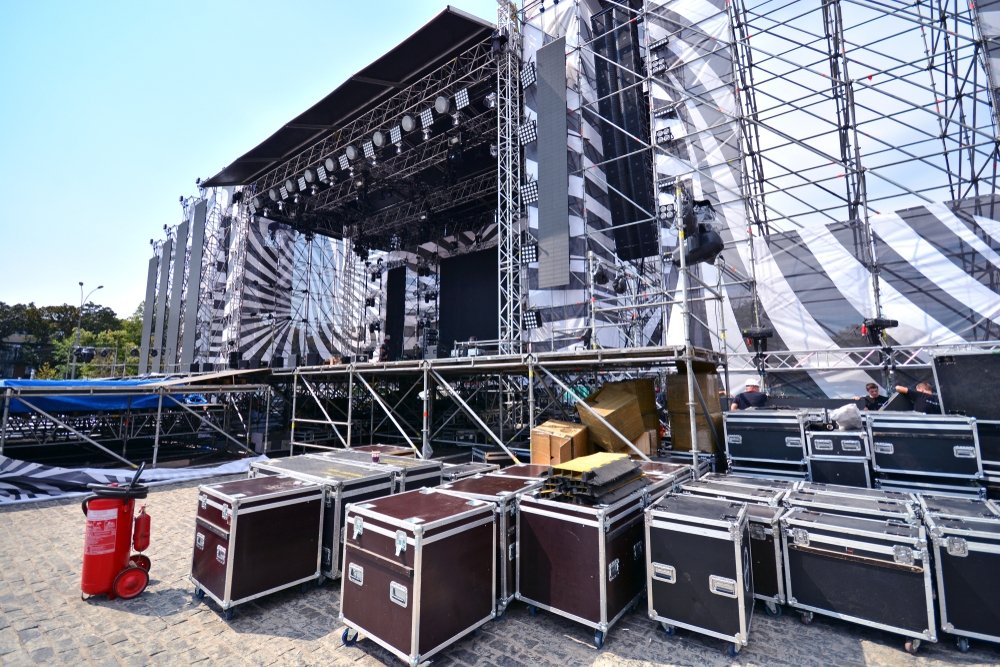
Kharkiv has been overflowing with the sound of classical music over the past two months. Organizers moved ahead with this year’s annual Kharkiv Music Fest despite the hardships of a brutal war that has placed Ukraine’s second city on the front lines. This yearly extravaganza has encouraged the city to embrace spring’s rejuvenation by creating bountiful opportunities for new audiences and long-standing fans to appreciate and discover classical music.
This year’s festival, directed by Vitali Alekseenok, included a star turn by internationally renowned violinist Bohdana Pivnenko who returned to Ukraine to play fresh from success on New York, Berlin, and Barcelona stages. Several festival concerts combined new compositions by Ukrainian composers—such as Zoltan Almashi and Oleksandr Honobolin—with famous works by Antonio Vivaldi, Astor Piazzolla, and other internationally renowned composers. Yuri Yakovenko, who has conducted the Kharkiv National Opera and Ballet for two decades, conducted the main stage concerts.
In addition, the Music of Resistance and Hope concert series at the Kharkiv National University of Arts presented works by Ukrainian (especially Kharkiv) composers such as Dmytro Amstybovsky and Stanislav Kalinin. Young composers carrying forward the theme of musical resistance to war wrote many of these works.
Just a few weeks ago Katia Kurdinovska and Igor Khodzhaniyazov performed an explosive bouzouki concert featuring Ukrainian and Greek folklore and music. Norwegian pianist and composer Axel Kolsted offered a solo performance of his work as well. In addition, six painted pianos provided by the Art Piano project were placed in safe locations around the city, such as the metro and shopping centers, for the public to play at will.
Online conversations supplemented live performances, showcasing leading musicians from around the city, Ukraine, and the world. These included composer Oleksandr Shchetinsky, jazz performer Leonid Chyzhyk, and pianist Virko Baley, as well as American composer Richard Cameron Wolfe and German choreographer Sasha Walz. Supported by public funds and foundation grants led by the Kharkiv community foundation Toloka, these activities will extend to summer music camps and other educational programs throughout the year.
The Kharkiv Music Fest has become a mainstay of the local music scene. Co-founders Serhii Polituchyi and Stanislav Khristenko launched the festival in 2018, in cooperation with the city’s major music institutions, in order to nurture new classical music fans and performers. They sought to do so through free, community-oriented performances in unconventional locations such as the metro, shopping malls, art galleries, and open-air venues. They dedicated their initial effort to the 333rd anniversary of Johann Sebastian Bach, focusing the following year on works by Wolfgang Amadeus Mozart. This second success earned the recognition of the European Festivals Association, an endorsement which seemed to augur well for the future. Difficulties were to follow.
COVID restrictions shut down the 2020 festival. The organizers pushed through in 2021, despite COVID constraints. That year’s festival celebrated the 250th anniversary of Ludwig von Beethoven’s birth, with 22 concerts, 11 educational events, and nine special projects, some of which took place online. The Russian invasion reduced grand plans for the 2022 festival to a single “Concert between Explosions.” This spring’s incarnation demonstrates that neither a pandemic nor a war can silence the music and destroy the will of a city.
Announcing this year’s program, festival communication manager Kateryna Lozenko spoke of the importance of giving Ukrainian culture expression at home and throughout Europe. Precisely because the war continues, now is the moment “to put the aggressor culture on silent mode,” she said.
Kharkiv’s classical music community has responded to the war from the opening salvos aimed at their city in February 2022. Opera singers, orchestra members, teachers, and amateur chamber musicians have headed out onto the streets, into the metro and bomb shelters, and into the city’s damaged concert venues to keep the music—their city, nation, and spirit—alive. They have offered performances to small audiences of soldiers at the front, to gatherings of families and citizens seeking shelter wherever it can be found, and to international audiences through social media and live concerts. This year’s Kharkiv Music Fest showcases the power of music to inspire, even across the time and space symbolized by European classical music.
The opinions expressed in this article are those solely of the author and do not reflect the views of the Kennan Institute.
See our newest content first.
Subscribe to receive the latest analysis from Focus Ukraine.
About the Author

Blair A. Ruble
Former Wilson Center Vice President for Programs (2014-2017); Director of the Comparative Urban Studies Program/Urban Sustainability Laboratory (1992-2017); Director of the Kennan Institute for Advanced Russian Studies (1989-2012) and Director of the Program on Global Sustainability and Resilience (2012-2014)

Kennan Institute
The Kennan Institute is the premier US center for advanced research on Eurasia and the oldest and largest regional program at the Woodrow Wilson International Center for Scholars. The Kennan Institute is committed to improving American understanding of Russia, Ukraine, Central Asia, the South Caucasus, and the surrounding region though research and exchange. Read more


